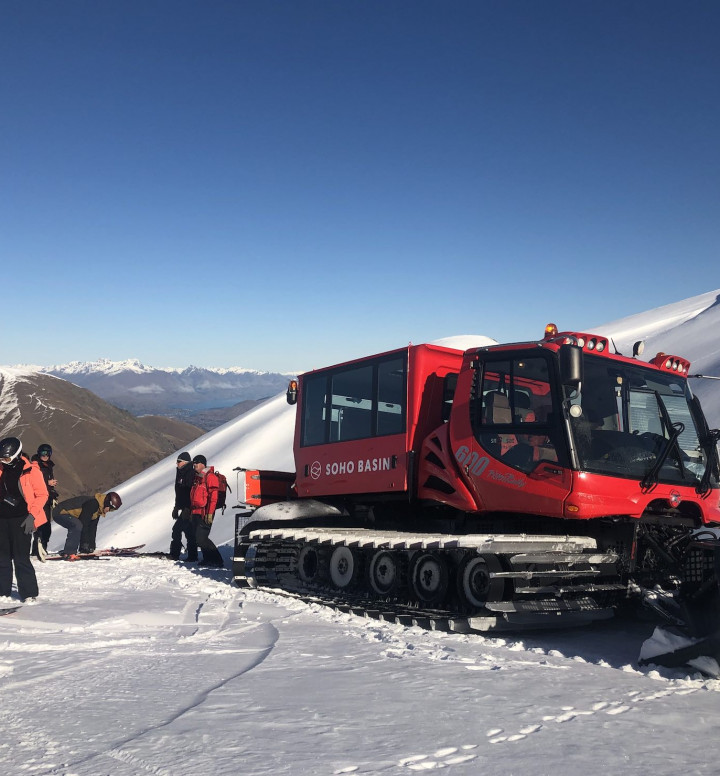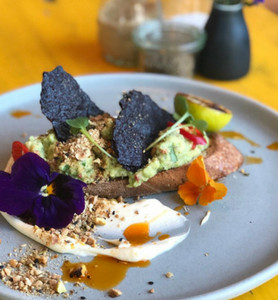Meet the Maker: Ben Leen of Amisfield Winery
There’s always something so enigmatic about wine, and whether an expert in viticulture or not, the profound craft behind each sip is somewhat of a love language that we can all relish in. Amisfield Winery has paved the way, and the Estate and vineyard located in the picturesque Pisa Ranges is nothing short of breathtaking; a true testament to the surrounding terrain, a glass of Amisfield is a taste of New Zealand’s wine capital. Remix’s Annabelle Taurua had the opportunity to speak to one of the winemakers, Ben Leen and his ‘wine is made to be shared’ philosophy as he admires the vineyards backdrop of the Pisa Range on one side, and a few barrels of 2022 Pinot Noir on the other. 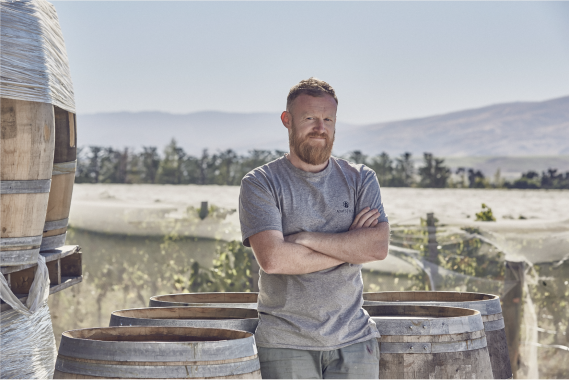
How did you start in the wine-making business?
I lived in France for a year, and whilst travelling I found a new love for grapes and wine. While working in a vineyard in the Beaujolais region, I was completing seasonal work to fund the next part of my European adventure, and I ended up falling in love with what wine meant to the French. It's about the people and a celebration of the hard work that goes into growing and harvesting grapes and turning that into wine.
Amisfield’s backdrop is one in a million, can you tell us about why this land specifically was chosen when creating Amisfield?
Amisfield started with the owner, John Darby. He bought the land in the late 80s before New Zealand started selling wine. John had a very solid idea of what the future held for Central Otago. The breathtaking landscape, the jagged edges of the mountains and the extreme conditions that we grow down here are what we try and highlight in the wine and what we're trying to give people - whether they're eating at the restaurant or sipping one of our wines, you get that taste of Central Otago.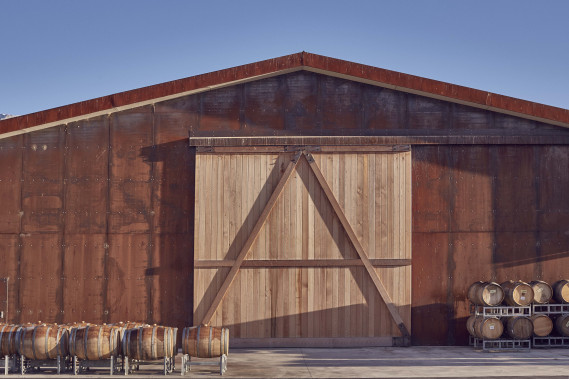 How does the unique terroir of Central Otago influence the character and flavours of Amisfield wines?
How does the unique terroir of Central Otago influence the character and flavours of Amisfield wines?
Central Otago is known as a continental climate, so we can get really warm summers, but what really helps the grapes increase their flavour intensity when they're ripening is that it also cools down a lot at night. In summer, we can be mid-30s in the vineyard, but then it might drop down to under 10 degrees so that big shift from really warm to really cold helps retain the acidity of the grapes. We've got a very special climate and we're fortunate that we can achieve so much flavour in our grapes - that's really what's put Central Otago on the Global Map, and what sets it apart from other regions in New Zealand.
Amisfield has been recognized for its commitment to organic practices and sustainability. How do these principles influence the winemaking process and contribute to the overall quality of the wines?
Because we are a family-owned wine business, there's that thought process of "we've got to leave it in better shape for the next generation."This is where organics and sustainability come in. Organics means no synthetic chemical use, so anything that's used in the growing or making of our wine is a naturally available product. It’s also a philosophy that's based on soil health and diversity, and at the same time also considers going beyond just a monoculture - we’re more than just growing grapes, we want to be a farm - we've got a handful of really cute sheep, a peacock and a handful of guinea fowl. We were also recently awarded the 'New Zealand Sustainable Vineyard of the Year' through the New Zealand Organic Wine Awards - accolades like that are great for sales and good validation for us, but what's equally as important is getting these accolades based on the land and our philosophy and approach to farming.
What ideal complexities do you look for in your wine production?
Amisfield is a single-estate, so one farm with 92 hectares, and all certified organic. With organic viticulture, we are very prone to the elements, so every year is different and the wines taste different. When it comes time to craft the wine we want to create something balanced, approachable and delicious. The complexities come in when it's a different use of oak or it's what we refer to as whole bunch fermentation, which can offer perfume and spice to the wine. What it boils down to is having a great site, with good variation in the soils and obviously, behind all that is the climate - every year is different, which is exciting. The beauty of wine is that it should be an expression of one place. 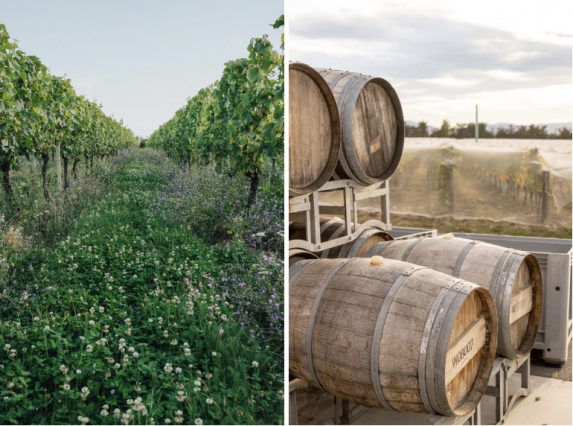 Wine connoisseurs will often talk about certain years producing the best wine, and using 2015 and its beautiful production as an example, can you explain why years will differ so much with each bottle?
Wine connoisseurs will often talk about certain years producing the best wine, and using 2015 and its beautiful production as an example, can you explain why years will differ so much with each bottle?
A lot of that comes down to the overall climatic conditions - some summers we might have a larger amount of sunshine hours, and in those years, the grapes will be quite big bunches of plump and juicy grapes, compared to in a very cool year, the bunches are much smaller, so the flavour is much more intensified. With white wines, a cooler year will provide higher acidity so the wines tend to be a bit more electric and they age well. That's why wine is so beautiful - one side of the vineyard, even though it's only a few kilometres apart, can taste completely different.
If you could choose - oak barrel fermentation or stainless steel?
Oak plays a really big role in Amisfield - you can have new oak that will impart a lot of flavour because it's heated with naked flames which is how it gets bent into the shape, and at Amisfield, we have about seven or eight different barrel makers that we get barrels from - all from France. Older barrels that have been used several times won't give you an oakiness, but they will evolve differently compared to stainless steel. Stainless steel is great for retaining freshness. The barrel-aged gives a bit of texture and weight and softens the wine, whereas the tank gives crisp and fresh notes. So I'm a fan of both techniques.
As a single-estate vineyard, Amisfield's wines are deeply connected to the land. How does Amisfield Restaurant incorporate this connection into its culinary offerings, ensuring that guests can experience the unique terroir of the vineyard in every aspect of their dining experience?
Vaughn has got such great relationships with the suppliers, sourcing as far south as Bluff when it comes to the seafood aspect, but also closer to home is the wild game that they use on the menu, some of which he's shot himself. For him, proximity is really important, and working with like-minded people that are equally as passionate about the land and the terrain and where it all comes from. It's a unique insight into what this area can produce. And when it comes to the wine, it's the same philosophy, except we're just supplying our grapes. We care about how we grow them. We love the area that we're from - every day that I turn up to work I'm blown away by the backdrop and that sets a really important tone for how we approach farming here, and also how we want to capture that essence in a glass or on a dish.
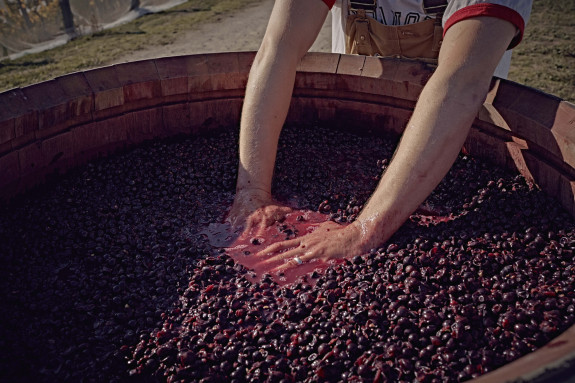 And finally, the winemakers pick. If you could only enjoy one Amisfield wine for the rest of your life, what would it be and why?
And finally, the winemakers pick. If you could only enjoy one Amisfield wine for the rest of your life, what would it be and why?
I have two kids - it's like asking me which is my favourite! [laughs]. If I had to choose, I love the RKV Reserve Pinot. It's a unique piece of our vineyard, ages beautifully. For a white, because I can't just choose one [laughs], the Chenin Blanc because it's not grown very widely in New Zealand. Andre, our vineyard manager rescued some research vines that were in Alexandra and propagated them himself - I really love the romance of that story. I'm also super excited about the upcoming Chardonnay!




